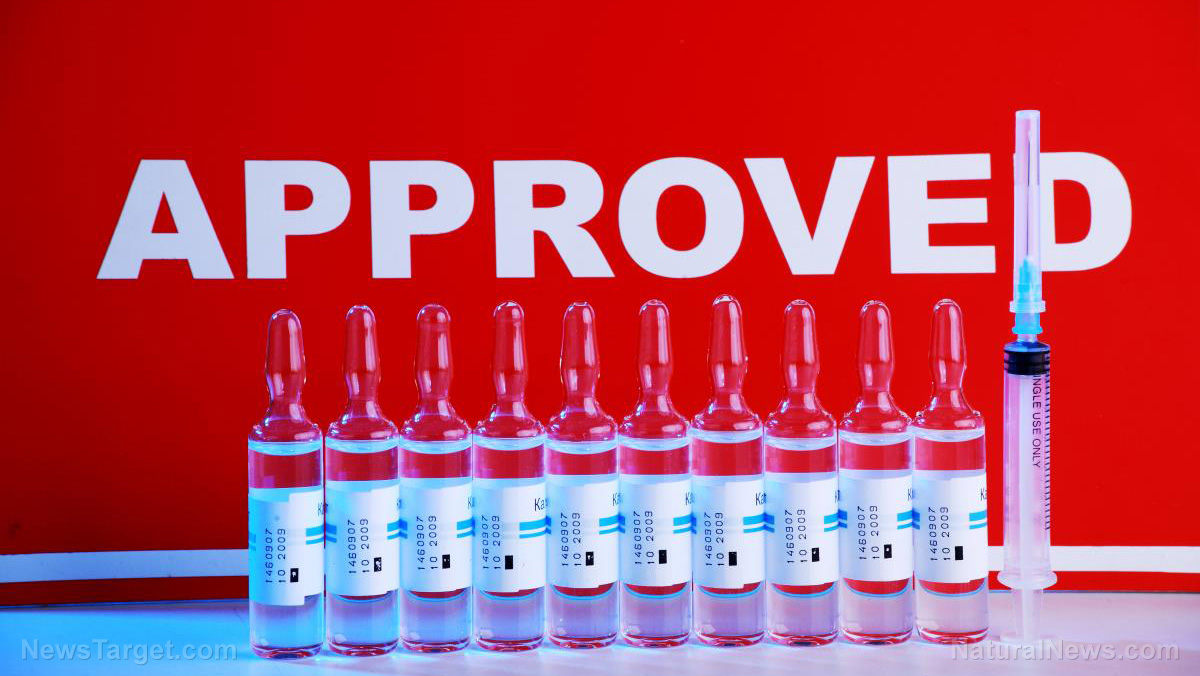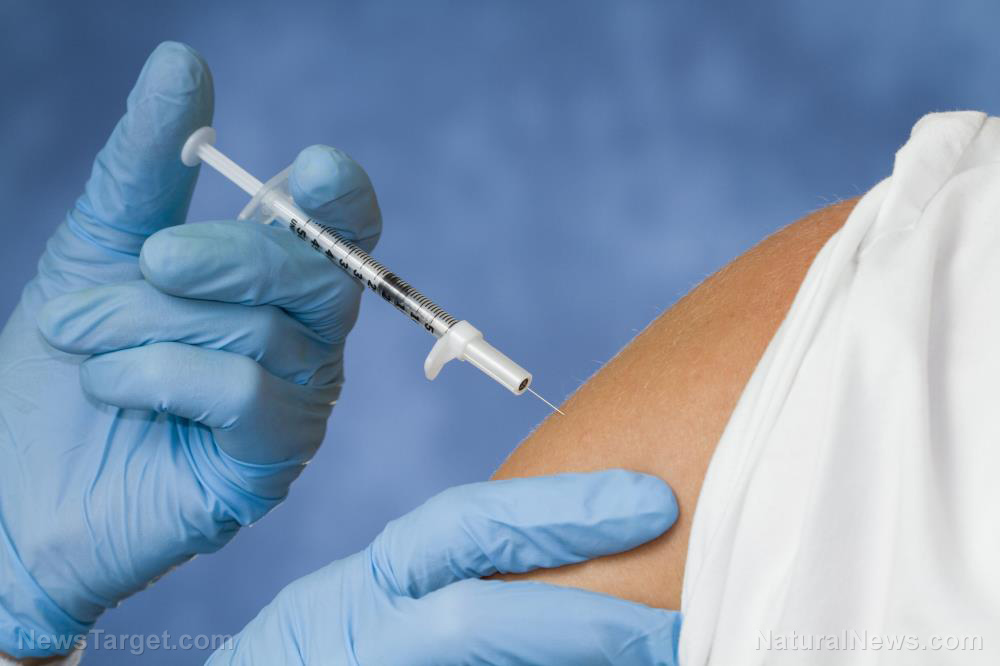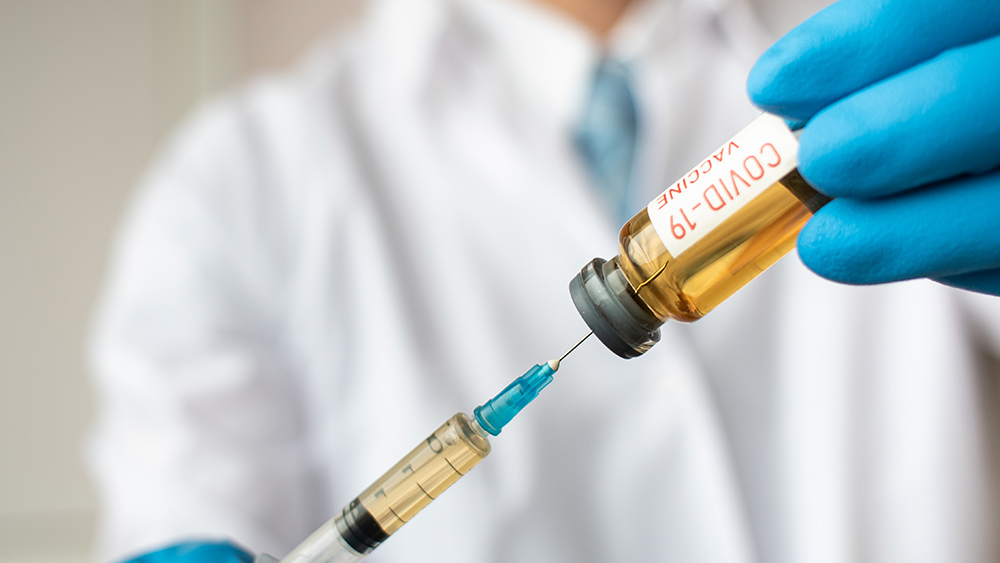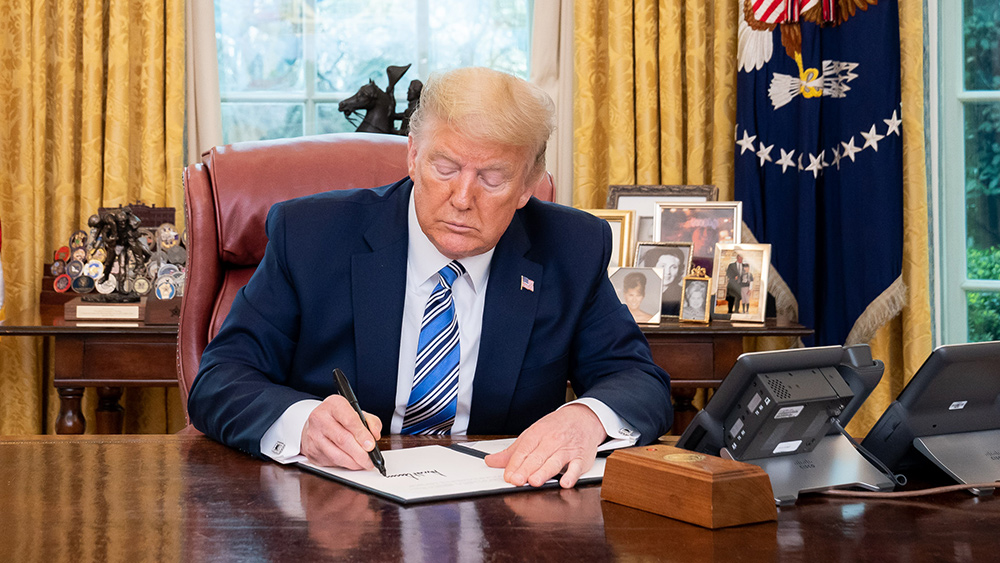AstraZeneca’s no-profit pledge for coronavirus vaccines may end in 2021
10/17/2020 / By Ramon Tomey

A memorandum of understanding between British pharmaceutical company AstraZeneca and Brazilian public health research institution Fiocruz obtained by The Financial Times stated the drugmaker has the right to declare the pandemic’s end by July 2021. Under the document’s terms, AstraZeneca will also be providing doses of its coronavirus vaccine – developed in tandem with the University of Oxford – on a cost basis for the duration of the pandemic.
The memo outlined a July 2020 deal between AstraZeneca and Fiocruz to produce at least 100 million vaccine doses amounting to more than $300 million. Based on the document, the coronavirus pandemic’s ending date is set on July 1, 2021 – but could be extended if AstraZeneca “acting in good faith” considers that the pandemic is not yet over.
However, the continuous rise of COVID-19 cases makes a July 2021 ending impossible. Even positive forecasts predicted that the earliest period when a vaccine becomes available for the general public would be past the middle of next year.
The British drugmaker declined to answer questions regarding its deal with Fiocruz. A statement from the company said: “From the outset, AstraZeneca’s approach has been to treat the development of the vaccine as a response to a global public health emergency, not a commercial opportunity.”
It added that AstraZeneca would “seek expert guidance, including from global organizations” on when the pandemic has ended. AstraZeneca CEO Pascal Soriot previously said that several factors, including analysis by the World Health Organization, would play a role in the company’s assessment of when the pandemic is truly over.
The university likewise declined to respond to specific questions, only mentioning that the terms of its partnership “uphold Oxford’s commitment to fair and equitable access to the vaccine … should it prove to be effective in our global phase three clinical trials.”
Deals such as the one between AstraZeneca and Fiocruz have been criticized for lack of transparency
Several pharmaceutical companies have already struck deals with different governments, but the actual details on these are sparse – something that public experts have criticized.
Médecins Sans Frontières medical innovation and access policy adviser Manuel Martin criticized the memo between Fiocruz and AstraZeneca, saying that the drugmaker had “an unacceptable level of control over a vaccine developed through public funds.” He added: “Relying on voluntary measures by pharmaceutical corporations to ensure access is a mistake with fatal consequences,” he said.
Medicines Law & Policy director Ellen ‘t Hoen, whose group campaigns for greater access to medicines, said more transparency was needed. ‘t Hoen added: “Despite all the talk about the COVID-19 vaccine needing to be a ‘global public good’ by political leaders who spend billions on COVID-19 R&D, it seems that it is the drug companies that determine, in secret deals, who will get access to the vaccine and when.”
Even though a vaccine is approved, the coronavirus will not simply disappear
The price of any approved vaccine is a contentious issue as drug companies, including AstraZeneca, received large sums of public money to fast-track any vaccine development. In particular, the U.S. has supported AstraZeneca and other drugmakers under President Donald Trump’s Operation Warp Speed program. (Related: Trump administration demanding nationwide rollout of COVID-19 vaccines by Nov. 1.)
Some companies have said from the outset that they can only develop the vaccine for profit, while other drugmakers have agreed to provide doses on a cost basis for at least as long as the pandemic lasts.
However, the mad scramble to rush a vaccine comes with safety risks. AstraZeneca experienced this firsthand when two participants in its phase three vaccine trials developed spinal inflammation – a common side effect of vaccines. And regardless if a vaccine is approved for the general public, experts have said that the novel coronavirus will remain a problem, and people would have to learn how to live with it.
Find out more news about pharmaceutical companies’ efforts to develop vaccines against COVID-19 at Vaccines.news.
Sources include:
Tagged Under: AstraZeneca, Big Pharma, coronavirus, covid-19, covid-19 pandemic, COVID-19 vaccine, pandemic, Public Health, SARS-CoV-2, vaccine development, vaccine doses, vaccine production, vaccine profits, vaccine wars, vaccines




















